Advancing technologies have increased competition as well as customer expectations. It raises an important question: is your business prepared to adapt to these changes quickly? Firms have begun implementing new strategies to boost engagement and retain customers. For bus operators and travel managers, particularly, the best bus booking software you pick will decide how well you sell, operate, and settle revenue. You ought to have a tool that helps you sell more seats, reduces manual headaches, and keeps reconciliation tidy at month's end.
Businesses today need actionable data in an organized manner, mobile-driven bookings, and cloud-based services to make informed decisions. This guide will help you explore choices, manage low-risk pilots, and be confident about the future operations using the bus booking software for travel business.
To discover advanced bus booking software solutions that align with your operational goals, explore our detailed product overview.
What Makes Bus Booking Software Future-Ready
Future-ready means the product fits into your business without constant amendments. The bus booking software features should allow you to add capabilities later. It needs to operate in the cloud bus reservation system and perform well during peak times, like festivals or weekends. It should expose clean APIs so your CRM, accounting, or partner channels can support smooth bus booking software integration.
AI and automation are beneficial when they simplify tasks, not when they make things more complex. Concentrate on custom bus booking software development that delivers precise responses to particular business requirements rather than flashy displays. Also, look at vendor roadmaps and their update cycle. A vendor that ships minor but consistent updates is more valuable than one that promises a big thing next year. You want practical continuity.
The necessary question to ask is: Can this platform adapt as your operations and payment partnerships evolve, without forcing a complete rebuild? The right bus booking software for operators should easily align with future needs.
Learn more about how AI in transportation management is shaping future-ready booking platforms.
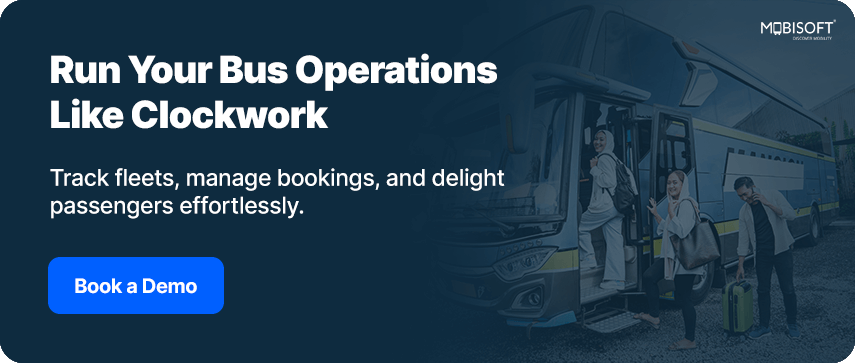
Key Features That Drive Business Efficiency
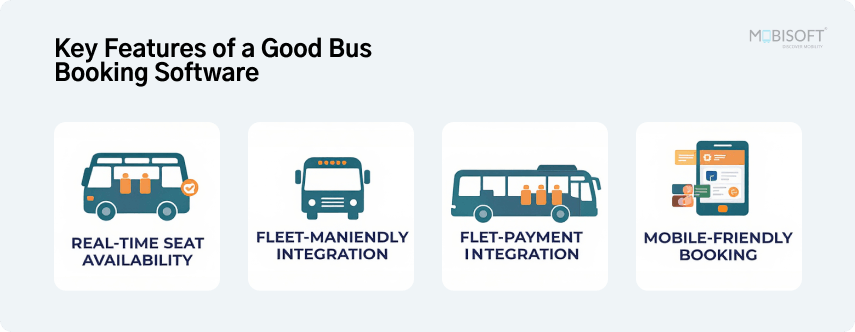
Streamlined Booking and Inventory Control
A good bus ticket booking system should make every booking count. Real-time seat inventory prevents double bookings, while visual seat maps help customers make quicker choices. When passengers can clearly see what’s available, your conversion rates quietly rise. We’ve seen small operators cut booking time by half simply by adding seat visualization and instant confirmation logic in an online bus booking software.
Smart Payments and Refund Handling
Money movement is where things get messy. You’ll want multi-gateway options that can process payments, refunds, and credits without manual tracking. Split settlements, in particular, matter for agencies that pay depots, subcontractors, or drivers separately. Automation here saves hours of reconciliation work. If your finance team still matches transactions manually, the bus reservation software hasn’t done its job.
Simplified Partner and Operations Management
Agent and OTA distribution needs rule-based control. Being able to set commission percentages or restrict certain routes per partner can prevent revenue leakage. And yes, operational touches like manifest exports, printable invoices, and QR-based boarding validation sound insignificant. But they remove dozens of small, repetitive steps every week. That’s what real efficiency looks like: invisible, consistent, dependable, something a bus booking software for travel agencies can ensure.
For a broader look at how digital tools streamline operations, check out our comprehensive bus transportation software designed for modern operators.
Mobile-First and Passenger-Centric Experience
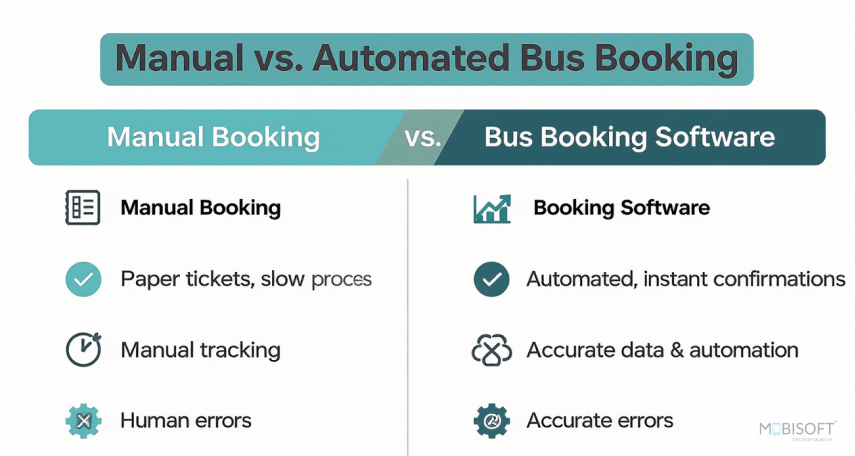
Your product must treat mobile as the primary device. Mobile bookings are no longer optional. A fast, simple booking flow increases completion rates. Ask how many clicks from search to payment and whether passenger profile data can be saved for one-tap rebooking. Push notifications for boarding changes matter. So does offline ticket validation in areas with poor coverage. Small UX details add measurable revenue.
For example, a one-screen checkout increases conversions. Personalization helps significantly by speeding up processes for repeat customers. This is achieved through data from previous routes, preferred seats, or stored IDs. Consider accessibility and minimal onboarding friction. Passengers want clarity at every step. If the app is confusing, you will see abandonment. Test demo apps as if you were a customer. Use the bus ticket booking software development demo flow yourself. It reveals more than vendor slides.
Explore our expertise in on-demand bus booking app development to build passenger-first experiences.
Data Insights and Revenue Optimization
Data holds worth if it leads to action. Think about this when you next process data: What real changes can you make next week because of it?
Actionable Analytics, Not Vanity Metrics
- Identify the most profitable routes, the busiest booking times, and the customer groups that generate the highest revenue
- Detect unexpected changes in demand or sudden drops in occupancy on specific routes to react.
Dynamic Pricing That Responds to Reality
- Modern systems allow contextual fare adjustments. It might be weekday versus weekend, advance purchase, or even weather-linked pricing, if you want to go that far.
- The point isn’t complexity, it’s agility. For instance, operators who introduced flexible fare bands often reported better seat utilization without losing brand trust.
Forecasting and Business Intelligence
- Exportable BI connectors let your data analysts model performance in their own environments.
- Integration with tools like Power BI or Tableau makes deep analysis effortless. And so, the data predicts, simplifies, and guides.
- Combine that with demand forecasting, and you can plan additional trips or reduce underfilled runs before they happen.
Security and Compliance Essentials
- Security must be non-negotiable. PCI compliance for payment data is basic. Also, check data residency rules for the countries you operate in.
- Some regions require passenger data to be stored locally. Look at role-based access control so depot staff, drivers, and corporate admins see only what they need.
- Audit logs are essential for dispute resolution. Encryption at rest and in transit should be explicit in vendor docs.
- Ask about incident response time and breach notification procedures. You need to have a backup plan for issues at 2 a.m.
Check how vendors manage background checks and handle data with any third-party collaborators. Giving an unverified partner access to a module could put you at risk. Ask for a clear security overview or an independent audit report before proceeding, especially if you’re evaluating a white label bus booking software or multi-operator setup.
Pricing and Scalability Considerations
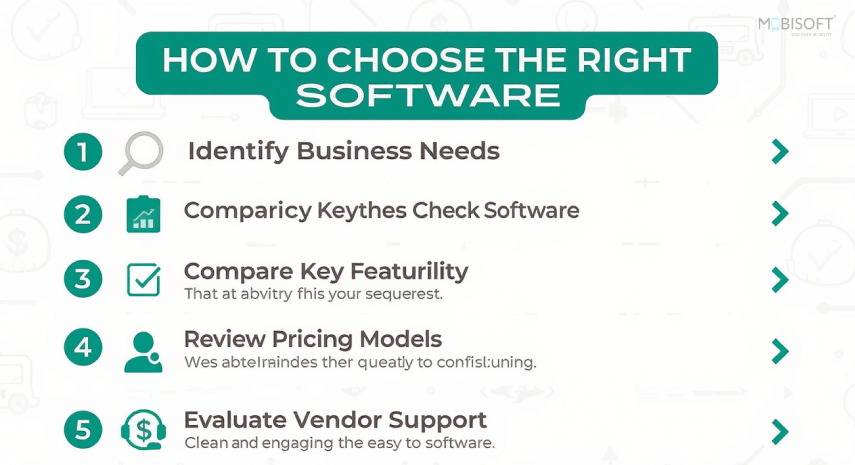
When it comes to cost, clarity is more valuable than cheapness. The best bus booking software is one that scales predictably with your business growth.
Understand the Total Cost of Ownership
Upfront fees rarely tell the full story. You’ll have licensing or subscription charges, plus hidden extras for training, API setup, or custom reports. Ask vendors of your bus reservation system to map out a one-year cost projection with best and worst-case traffic loads. Some teams discover that “affordable” systems become expensive once real integration begins.
Match Scalability With Predictability
Bus operations are cyclical. You’ll see traffic surges during holidays and sudden drops afterward. A scalable online bus booking platform should flex with that rhythm without forcing costly upgrades. Elastic Cloud pricing works if you can still forecast your spend. Negotiate transparent burst limits or monthly caps so growth doesn’t punish you.
Plan for Long-Term Flexibility
Finally, consider future expansions, like adding new cities, currency options, or white-label portals for partners. How much time and cost would those changes take? A bus ticket booking system that supports modular add-ons can grow quietly with you. You don’t want to rebuild from scratch in a year just because your fleet doubled.
Discover how our employee transport management solutions simplify workforce mobility for enterprise transport teams.
Vendor Evaluation and Implementation Checklist
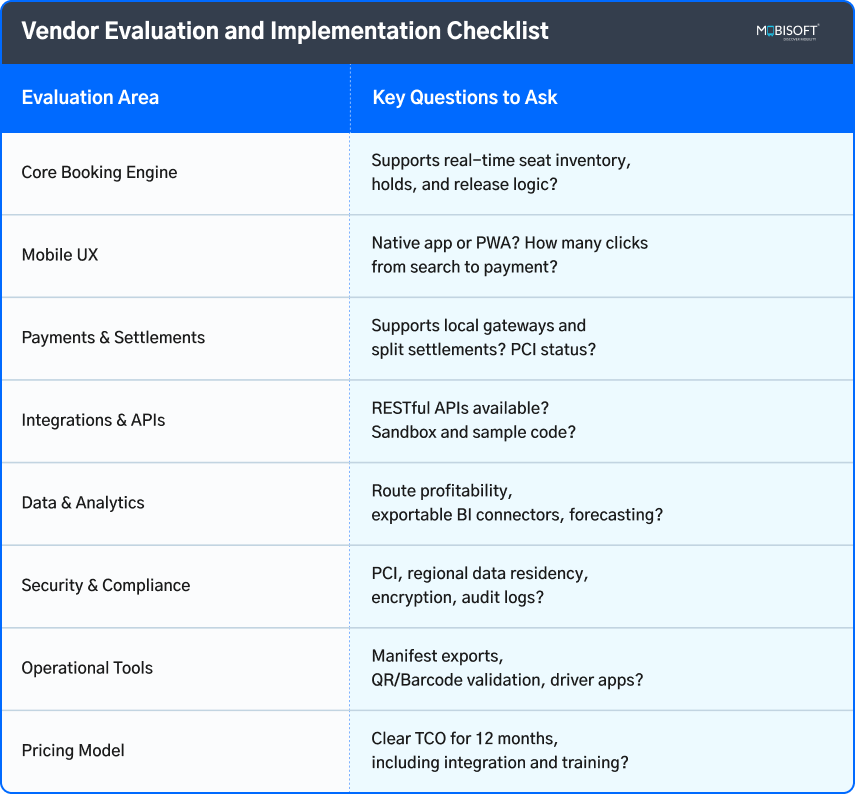
A strong partner network reduces integration work. For contract negotiation, push for clauses on uptime, data portability, and clear exit terms. Plan realistic timelines and train frontline staff early. Run a soft launch to validate processes before full rollout. Read about how Automated Bus Scheduling Solutions can transform route planning and boost efficiency.
Your Decision Roadmap for 2026
You can take this in three compact moves. Begin by establishing non-negotiable factors such as payment platforms, compliance with local laws, and facilitating seamless booking systems. Subsequently, conduct a test for approximately 30 to 60 days on one or two high-traffic routes to evaluate its performance in practical scenarios.
If the bus management software vendor meets your KPIs and integrates cleanly, scale to other routes. If not, iterate or exit. The right software will reduce manual work, increase sold seats, and make accounting simpler. It will give you clean data you can act on. You will still need operations muscle and customer care.
An effective bus booking software prevents you from spending time on redundant tasks and enables you to concentrate on boosting your income. Consider this: which problem should you address first? Resolve that and progress ahead.
Key Takeaways
- Your choice of bus reservation system decides how well you handle bookings, routes, and income.
- By 2025, adapting to digital tools isn't optional anymore; it's essential to survive.
- Successful bus booking platforms are made to adapt. They operate on the cloud, work with CRMs and payment systems, and stay fast even during high demand.
- Automation boosts efficiency by making things simple, not harder. Features like live seat tracking, quick confirmations, and rules for partner management cut down on repetitive tasks.
- Data should guide your next move instead of showing the past. Tools for analyzing routes, predicting trends, and adjusting pricing help you plan better and fill more seats.
- Protecting your credibility depends on security and compliance. PCI, GDPR, and role-based access aren’t just simple requirements. They serve as essential protections to maintain passenger trust and keep your business running.
- Expanding is key to lasting success. Pick systems that grow alongside your fleet, cities, and payment methods without needing expensive overhauls.
- The dependability of your online bus booking system vendor is just as important as the quality of their product.
- A good bus management software fits into your operations. It allows you to spend less time fixing tools and more time building your transportation business.

FAQs
How do I distinguish genuine innovation from marketing buzzwords when comparing vendors?
Ask vendors to show results instead of just listing features. If they bring up AI or predictive analytics, make them prove it by doing a live demo that shows how those tools improve occupancy rates or cut back on cancellations. The best companies focus on real results, not just tech talk. If they give unclear responses or keep postponing demos, avoid them.
Is it realistic for small or mid-sized operators to adopt enterprise-grade booking systems?
Yes, as long as modular pricing is an option. Many SaaS vendors now let you turn on the features you need, like payment systems or seat management, and add more as you grow. A common mistake smaller companies make is buying too much at first instead of building up their system step by step.
What’s the smartest way to pilot new software without risking disruption?
Start with a small rollout by using it in just one area or depot. Use both the old and new systems side by side for two weeks. Check how accurate transactions are, how long bookings take, and how easy reconciliation is. If mistakes drop and things get faster, roll it out further. If not, the risk stays limited.
What upcoming tech trends could redefine bus booking efficiency in the next few years?
Real-time fleet tracking and AI-powered assistants are making progress fast. Picture a setup where routes adjust when traffic increases, or updates are created for passengers during delays. These ideas aren’t just dreams; they’re already being tested by some big transport companies.

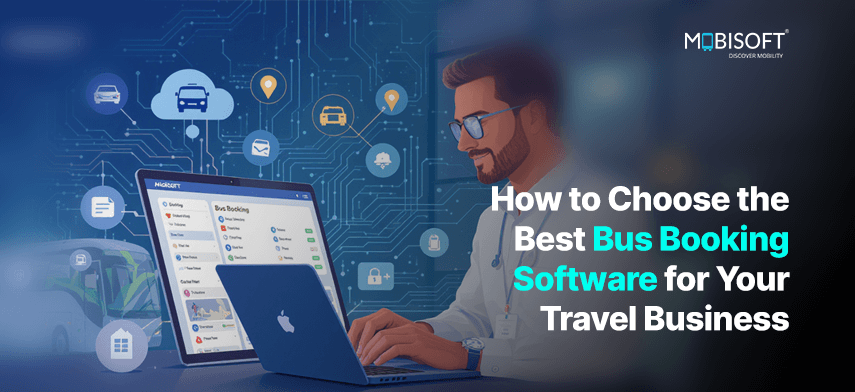


 October 30, 2025
October 30, 2025


